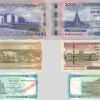Unlock export funds tied up in four banks

We are worried to learn that a significant portion of the Tk 10,000 crore Export Facilitation Pre-Finance Fund (EFPF)—established by the Bangladesh Bank to help exporters finance raw material imports through the banking system—remains stuck in four crisis-hit banks: Islami Bank Bangladesh, Social Islami Bank, First Security Islami Bank, and Union Bank. According to a report in this daily, approximately Tk 3,035 crore remains unpaid to the central bank by these banks, which are struggling with severe liquidity shortages. This has made it difficult for other, sound banks to secure sufficient liquidity from the fund to lend to exporters for raw material purchases from foreign markets.
These troubled banks were previously controlled by the Chattogram-based S Alam Group, but following the political changeover on August 5, their boards have been restructured, removing S Alam's influence. Despite that, the banks continue to face a liquidity crisis that is affecting their depositors as well. Among them, only Islami Bank, which owes Tk 2,000 crore, is in a better state now, with the central bank officials optimistic that it may be able to repay its portion by December as its account balance improves.
The banking regulator introduced the EFPF in January last year to support export industries amid a persistent foreign currency crisis. Since then, it disbursed Tk 7,900 crore among various banks, while recovering Tk 3,200 crore in principal. Currently, members of the Bangladesh Garment Manufacturers and Exporters Association (BGMEA), Bangladesh Textile Mills Association (BTMA), Bangladesh Knitwear Manufacturers and Exporters Association (BKMEA), and B and C type industries in export processing zones (EPZs) are eligible for financing from the fund. Each borrower can secure up to Tk 200 crore through banks which are required to pay it back in six months. Without timely repayments by the banks, the fund cannot function as intended as this creates an artificial shortage of financing.
It is, therefore, important that the Bangladesh Bank takes measures to unlock the EFPF capital tied up in the troubled banks. One approach could be to facilitate strategic repayment arrangements, backed by partial guarantees, to ensure that the banks can gradually repay their dues while minimising disruption to exporters. It is equally important for the regulator to enforce tighter oversight over EFPF distribution to prevent future lapses, ensuring that the fund remains accessible only to responsible banks. Exporters are the backbone of our economy, contributing billions in foreign earnings and employing millions. Any barrier to their operations must be removed.


 For all latest news, follow The Daily Star's Google News channel.
For all latest news, follow The Daily Star's Google News channel. 









Comments